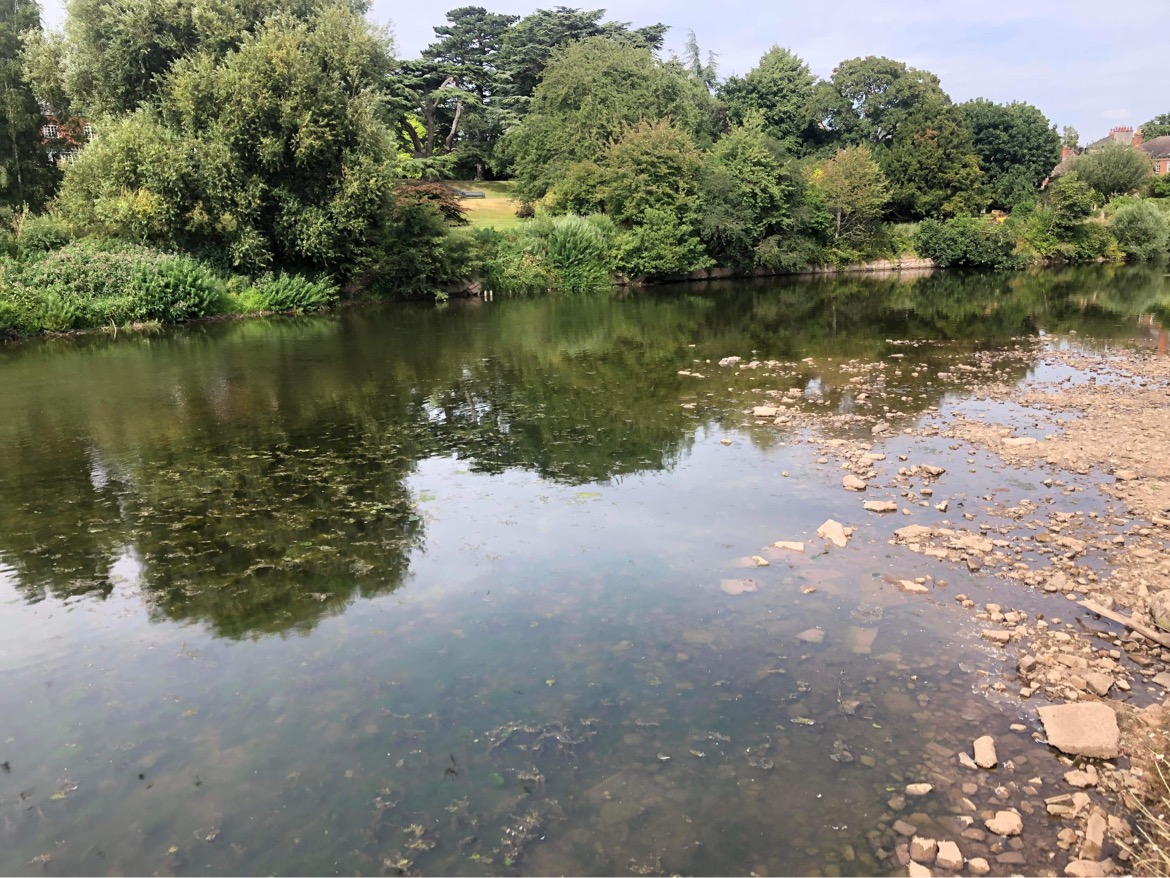The National Drought Group (NDG), made up of senior decision-makers from the Environment Agency, government, water companies and key representative groups met today (23 August) under the chairmanship of Sir James Bevan, EA Chief Executive. Water Minister Steve Double also joined the meeting.
Members agreed further steps to manage the current drought; to start work now to reduce the risk of drought next year; and to accelerate measures to ensure long-term water security.
Current situation
Despite the recent scattered rainfall, this has been the driest summer for fifty years, and the driest ever recorded for Southern England. The prolonged hot dry weather has led to exceptionally low river flows and low groundwater levels and a decline in reservoir levels with some well below average for the time of year. We have also seen a very large increase in demand for water and significant environmental impacts, with rivers and ponds drying out and fish and other wildlife dying or in distress.
Large parts of the country are now in drought status: Devon & Cornwall/Isles of Scilly; Solent and South Downs; Thames; Hertfordshire and North London; Kent and South London; East Anglia; Lincolnshire and Northamptonshire; East Midlands; and Yorkshire. The West Midlands has today been announced as the most recent area to move into drought status, meaning ten of the Environment Agency’s 14 areas are now in drought. Other areas classed as being in ‘prolonged dry weather’ include Greater Manchester, Merseyside and Cheshire; Wessex; and the North East. The only area now at ‘normal water resource’ status is Cumbria and Lancashire.
The recent rainfall in some parts of the country is not enough to replenish rivers, groundwater or reservoirs to normal levels. That will require a return to sustained average or above average rainfall over the coming months. Until – and unless – that happens, many areas will remain in drought.
EA Chief Executive Sir James Bevan said:
Water pressures on wildlife and the environment remain high and despite recent rainfall and the pause in the hot dry weather, we must continue to manage water wisely.
Both for the coming year and, with the impact of climate change, for the coming decade, a complete gear change is needed for how water companies and all water users, from farmers to households, think about how they use water and understand its fundamental value.
This summer should be a wake-up call for how the nation prepares for weather extremes and how we make the very best use of our water resources. Our National Framework for Water Resources sets out clearly what we are doing in the face of a new normal for water and we are determined to drive that forward.
Water Minister Steve Double said:
We know essential water supplies are safe – but more work must be done to ensure that we push forward investment to cut leaks and better prepare for prolonged dry weather for this year, next year and the coming decade.
Water companies need to be putting the needs of their bill payers front and centre of their plans – which means redoubling efforts to cut leakage and protect our natural environment.
Prospects and our response
There is no threat to essential water supplies. The water companies have confirmed that they have and will continue to have enough water for all essential household and business needs.
There is however a need to continue to manage water resources carefully over the coming weeks and months to ensure that the needs of the public, farmers and industry, and nature and wildlife are met. All participants agreed that they would continue to work together to do so.
The water companies are responsible for providing water to their customers, ensuring that public water supply is secure, and for maintaining supplies whilst minimising environmental impact. They will:
- continue to implement their drought plans proactively
- seek to maintain or where necessary increase water availability
- reduce water loss by stepping up work to fix leaks
- help their customers use less water
- take other measures to ensure there is enough water for essential supplies.
As part of these efforts, six companies (Southern Water, South East Water, Thames Water, Yorkshire Water, South West Water and Welsh Water) have so far implemented or announced hosepipe bans.
The Environment Agency will sustain, and where necessary, step up its work to manage drought and help meet the needs of water users, businesses and the environment, including by:
- monitoring and predicting river flows and groundwater levels, increasing the number of checks in important locations.
- managing water users’ abstraction licences to balance the needs of water companies, other abstractors and the natural environment.
- carrying out irrigation patrols and other compliance checks to ensure abstractors are complying with licence restrictions.
- responding to incidents caused by low river flows and high temperatures, including fish rescues and wildfires.
- operating its water transfer schemes to maintain river flows and groundwater levels to support wildlife and facilitate abstraction by water companies for public supply.
- supporting farmers and growers, including by helping them continue to access water while balancing their needs with that of the public water supply, other abstractors and the environment; and by providing advice and guidance.
- actively managing river levels and conserving water on the Thames and other rivers for which the EA is the navigation authority on behalf of river users and abstractors.
The public can all do their part to help ensure good water supplies by using water wisely.
Preparing for 2023
The Group agreed that sufficient rainfall over the autumn and winter would replenish rivers, lakes, groundwaters and reservoirs to normal levels by the spring; but that planning should begin now, on a precautionary basis, on how best to manage any water shortfalls that might arise in 2023 in the event of a dry autumn and/or winter.
It was agreed that the NDG’s Water Supply Sub-Group will meet next month to take this forward and report to the NDG in October on progress. The EA will lead an NDG exercise in December to test plans.
Ensuring long-term water security
The NDG also reaffirmed the need to ensure long-term national water security in the face of a growing population and climate change. It noted that there is already a plan to do so, the National Framework for Water Resources (NFWR), launched by the Environment Agency in 2020 and agreed with the other regulators, the government and the water companies, which aims to ensure that by 2050:
- Leakage rates have been cut by 50%.
- Demand has been reduced to an average of 110 litres per person per day.
- New sources of supply have been developed, including through the construction of new reservoirs, desalination plants, water recycling and water transfer schemes.
- All the water companies are working together effectively to predict and supply the water needs of each region of the country, not just the needs of their own area.
- National resilience to drought has been greatly enhanced, to a standard (1:500) which will allow water companies to maintain supply in all except the most extreme droughts (i.e.those of a severity with only a 0.2% chance of occurring in any given year).
The NDG agreed to intensify work to meet or beat these targets. The NFWR’s Strategic Steering Group will meet in September to identify ways to accelerate progress. A central element will be Ofwat’s 2024 Price Review which will set levels of water investment until 2030.
The NDG will meet again on 19 September to review the latest situation and agree any further necessary measures.
Further information:
Attendees at the National Drought Group included:
- Environment Agency
- Defra
- Cabinet Office
- DLUHC
- AHDB
- Angling Trust
- HTA
- CLA
- Canal and River Trust
- Consumer Council for Water
- Drinking Water Inspectorate
- Energy UK
- National Resources Wales
- Rivers Trust
- RSPB
- Ofwat
- UKHSA
- Met Office
- Natural England
- National Farmers Union
- Water UK
- Waterwise
- Welsh Government
- Affinity Water
- Anglian Water
- Bristol Water
- Northumbria Water
- Portsmouth Water
- Severn Trent
- Southern Water
- South East Water
- South Staffs Water
- South West Water
- Thames Water
- Yorkshire Water
- SES
- DCWW
- United Utilities
The Environment Agency uses four stages to describe and manage drought conditions:
- Prolonged dry weather
- Drought
- Severe Drought
- Recovering Drought
Contains public sector information licensed under the Open Government Licence v3.0.




